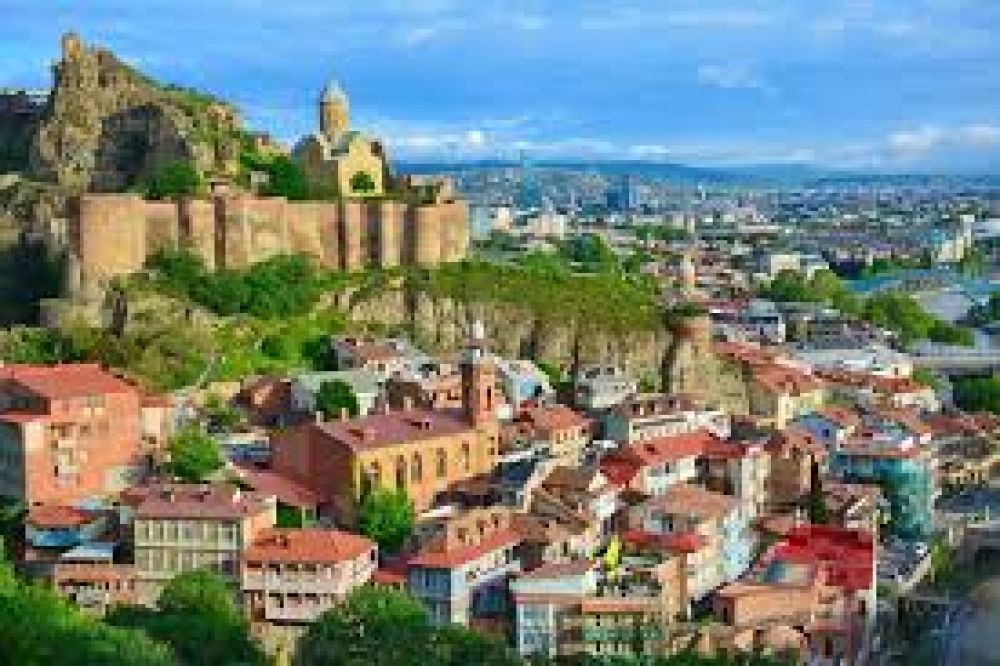Some of the top tourist attractions include the Old Tbilisi area with its narrow streets and historic buildings, Narikala Fortress offering panoramic views of the city, the Holy Trinity Cathedral (Sameba), Sulfur Baths, the Bridge of Peace, and the Rustaveli Avenue. Don't miss the vibrant Tbilisi flea market at Dry Bridge for souvenirs.

